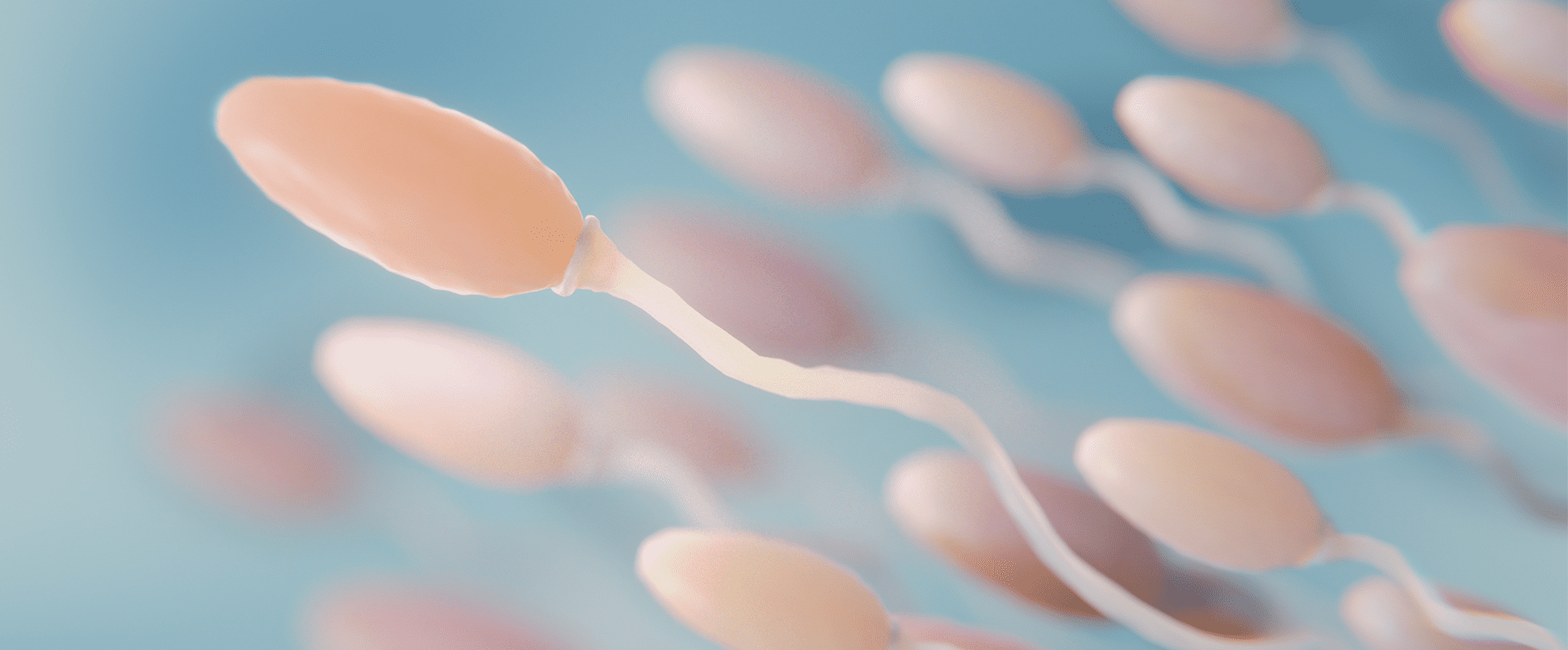Male infertility is a reproductive health condition defined as the male's inability to make a fertile female conceive (become pregnant) even after a year or more of unprotected, frequent sexual intercourse. The male is solely responsible and contributes to about 20–40% of all infertility cases. Male fertility problems include low- or poor-quality sperm and blockages in the tubes of the male reproductive system. Early analysis of a semen sample can help in finding out the problem with the semen or sperm quality or production that is likely causing infertility and provide treatment possibilities.
Causes of Male Infertility
Infertility may be caused due to various factors both in males and females. In males, infertility may be caused due to:
• Abnormal quality and sperm function: The quality and quantity of sperm functioning can affect fertility. The usage of certain medications can change sperm count (number), morphology (shape), and motility (movement).
• Testicular diseases: Conditions such as varicocele, haematocele, and various other testicular disorders can reduce the sperm-producing cells, causing infertility.
• Reproductive tract obstruction: The blockage of reproductive tubes (seminal vesicles and ejaculatory ducts) that carry seminal fluid can lead to infertility.
• Hormonal disorders: These include disorders of the pituitary gland, testicles, and hypothalamus, causing hormonal imbalance that in turn, affects fertility.
• Tumours: Certain non-malignant tumours and cancers may affect the functioning of male reproductive organs. In certain cases, chemotherapy, radiation, and surgery to treat tumours may also affect male fertility.
• Problems with sexual intercourse: Conditions such as erectile dysfunction (difficulty in maintaining an erection), painful intercourse, premature ejaculation, and certain anatomical abnormalities such as hypospadias (urethral opening beneath the penis) etc. can impact fertility.
• Chromosomal defects: Inherited chromosomal disorders such as Klinefelter’s syndrome, cystic fibrosis, and Kallmann’s syndrome are associated with male infertility.
Apart from the above reasons, various lifestyle factors such as obesity, excessive alcohol consumption, smoking, the presence of anti-sperm antibodies, undescended testicles, prior surgeries, exposure to environmental toxic chemicals and pollutants can affect reproductive health in males.
Signs and Symptoms
In males, signs and symptoms of infertility may include:
• Pain and swelling in the testicles
• Small and firm testicles
• Changes in sexual desire
• Changes in pubic hair growth
• Inability to smell
• Frequent respiratory infections
• Gynecomastia ( abnormal breast growth)
• Difficulty with erections and ejaculation
• Reduced sperm count
Diagnosis of Male Infertility
Determining and diagnosing male infertility may require several tests. It usually involves:
• Physical examination: During the physical examination, your healthcare provider will examine your genitals and may ask you about your past health problems, surgeries, or injuries that might affect your fertility.
• Semen analysis: Semen Analysis: Key Test To ensure accurate results, in most instances, several samples of semen analysis are done over a period of time. Semen analysis measures the following parameters that characterise your sperm and semen.
• The volume of your sample: It measures the amount of semen present in the sample. A low volume of semen may indicate infertility.
• Sperm Count: It measures the total number of sperms in the sample. A low sperm count will be challenging to get your partner pregnant.
• Sperm Concentration: It measures the sperm density in your semen. A low concentration may indicate that the person is infertile.
• Sperm movement (motility): It determines the movement of sperm. For sperm to fertilise an egg, it must be able to move forward towards the egg or ovum.
• Sperm shape (morphology): It determines the quantity or number of sperms that have a normal shape to fertilize an egg.
• pH of seminal fluid: If the pH of the seminal fluid is acidic i.e. <7 it can affect the vitality, viability, and motility of sperm.
• Leukocyte count (white blood cells): The presence of white blood cells in the given sample may be a sign of infection, which in turn affects fertility.
• Sperm DNA Fragmentation by Flow cytometry: It is a type of male fertility test that determines the amount of damaged DNA in a given sperm sample. A high percentage of sperm DNA damage indicates difficulty in achieving pregnancy. Flow cytometry is a rapid, sensitive, and automated method to determine male infertility. It is also used to measure sperm concentration and assess spermatogenesis, motility, and viability due to its multi-parametric capability.
Additional tests:
• Scrotal ultrasound: It detects varicocele and other testicular problems using high-frequency sound waves.
• Transrectal ultrasound: It helps to identify blockages of the tubes that carry the seminal fluid.
• Post-ejaculation urinalysis: It helps to determine the presence of retrograde ejaculation (sperms travelling backwards into the bladder instead of the penis).
• Hormone testing (blood test): It measures the level of hormones produced by the hypothalamus, pituitary gland, and testicles that play a role in sperm production and sexual intercourse.
• Genetic testing: It helps to diagnose congenital disorders that affect the Y chromosome and to determine the genetic cause of low sperm concentration.
• Testicular biopsy: It involves collecting samples of testicles, followed by examination under a microscope to diagnose the cause of infertility.
Treatment for male infertility
Depending on the cause of infertility, treatment may include medications (hormonal therapy), antibiotic treatment to treat infections, medications or counselling to treat sexual intercourse problems, surgeries to correct varicocele, and assisted reproductive technology (ART) to perform in-vitro fertilization or intracytoplasmic sperm injection.
One of the leading causes of divorce these days is infertility in either of the partners. Timely diagnosis and treatment can save a marriage and lead to a more fulfilling life. Infertility is preventable and curable by adopting lifestyle modifications in the form of maintaining a healthy weight and habits, managing stress, avoiding things (like laptop use, cooking, etc.) that lead to prolonged heat exposure to the testicles, abstaining from alcohol, and limiting exposure to pesticides. Early diagnosis, adherence to treatment or counselling, and regular follow-ups will help combat infertility.


